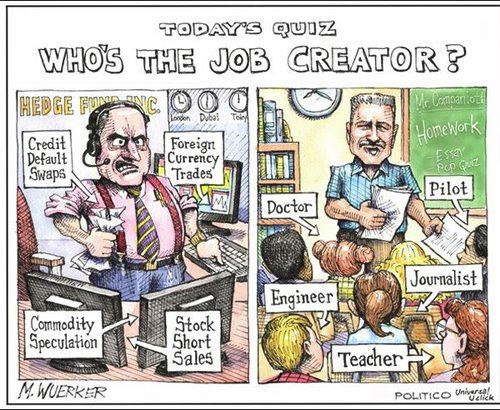SNOPA: Bill to Protect Facebook Privacy Introduced in Congress
 The Social Networking Online Protection Act, authored by Eliot Engel of New York, and sponsored by Jan Schakowsky of Illinois would ban the practice of requiring job applicants, employees or students to provide their social networking information. Earlier this month Maryland passed a similar bill.
The Social Networking Online Protection Act, authored by Eliot Engel of New York, and sponsored by Jan Schakowsky of Illinois would ban the practice of requiring job applicants, employees or students to provide their social networking information. Earlier this month Maryland passed a similar bill.
Perhaps I”m being charitable, but I’ve always assumed that employer Facebook snooping was likely based on one of two incorrect assumptions:
- That knowledge is power.
If government can be Big Brother – why not job creators too? - That having log on credentials would prevent publicly embarrassing incidents.
Employer Spying is More Liability than Asset
Having log in access to the personal chats, voice communications, and posts of employees exposes employers to an endless amount of personal and potentially privileged information. Suddenly firms are privy to a variety of personal relationships, preferences and beliefs which are protected under employment law. An important ring of defense against charges of discrimination “we didn’t know and don’t care” is immediately removed by this action. It such cases, knowledge is vulnerability.
Second, I promise you, having log on credentials creates a series of troublesome exposures for organizations.
- Abuse / Breach of Trust: imagine the ick-factor of bosses or university staff suddenly showing intimate knowledge of their employees or students lives. Compound that with obsessive interest, stalking, and the potential for crime based on the intimate knowledge of personal communications.
- Failure to Act: There is a substantial risk of “failure to act” charges when bad acts are perpetrated by those being monitored. There will at least be questions of “who knew what when”. Did monitors knowing permit illegal or unethical act simply because they were not directly harmed by them. Did they have a duty to know or take action?
Spying and the the Craigslist Killer
Imagine if Boston University Medical School had decided to monitor all communications on its network, and Craigslist killer Philip Markoff had used their network to book appointments with his victims. Even if he took steps to hide his intent, would there be liability?
The mother of a woman he killed, Julia Brisman, has sued Marriott for failing to prevent prostitution within its walls, which her daughter had taken steps to conceal. This case relies on Marriott’s responsibility to know if its guests are breaking laws and then to take action.
Once you monitor, there is an increased burden and responsibility for awareness. Rather than being power, knowledge can create liability.
Create policies that enable intrusion at your own risk. In my estimation, that risk is material.
During times of economic stress, the influence of employers may seem boundless. They are hailed as “job creators” – though I’d suggest the influence of customers, educated staff and inventors, and fair civil government should be equally as lionized.Yes, really, equally. Capital is good, but oligarchy isn’t.
There’s something deep in the American psyche which prefers the story of the hero, over that of a rational and cooperatively focused society. The Scandinavian model is less heroic, but there’s a strong case for it and a culture of innovation that extends from Linus Torvalds, to Nokia, to Novo Nordisk. Its a contrast to the American model that might be called “Triple or Nothing“.
So, to bring this to a point. There is a 4th Amendment which protects our bodies, houses, papers and effects against unreasonable search by the government. Though localized to Facebook and other social media, perhaps social media protection laws are a response to the excesses of private institutions which persons should have a more enforceable protection of privacy from.
(This post is a general commentary on news and digital marketing – it should not be considered legal advice or applied to specific circumstance.)


 The future of digital experiences will be built by strategists who grasp the full array of emerging business, social, and technical models. Specialties in user experience, branding, application design, and data science are laying the foundation for richer user experiences and business models breakthrough products and revenue based marketing.
The future of digital experiences will be built by strategists who grasp the full array of emerging business, social, and technical models. Specialties in user experience, branding, application design, and data science are laying the foundation for richer user experiences and business models breakthrough products and revenue based marketing.
3 Responses to "SNOPA: Bill to Protect Facebook Privacy Introduced in Congress"
April 29, 2012
Hi Dave,
A great and timely post! You took an angle that i wasn’t expecting: the liability that employers take on when they ask for access to employee FB accounts. Excellent points.
But liability aside, there just seems to be something wrong about an employer requesting access to an employee’s password protected service. It’s great to see people spreading the word, speaking up and having conversations about this topic.
One last thing: I recently saw an article on ReadWriteWeb entitled “Employers Demanding Facebook Passwords? Nope.” The article argues that the Employer-Asking-for-FB-Passwords trend has been overhyped in the media. Interesting read:
http://www.readwriteweb.com/archives/one_month_inside_journalisms_echo_chamber.php
Best,
Brian
April 30, 2012
Hi Brian,
Thanks again. I agree, asking for social media log-ins so you can be checked-up on as as creepy has asking for a copy of house keys – so every now and then your employer can search your house. In some ways our digital tracks are more personal, because the form a print of personal awareness.
The RWW articles seems quite on base — so often legislation is in response to hype or individual bad incidents that can inspire totally misguided or damaging law. Hype or not, the law and individual rights has a long way to go to catch up to our digital lives. I’m feeling an urge just to batch through legal questions raised by Facebook, as they are piling up like spider webs.
Good seeing you here! Thanks.
September 14, 2020
Visit sex in nürnberg for your own sexy chat pleasure with hot young local girls!